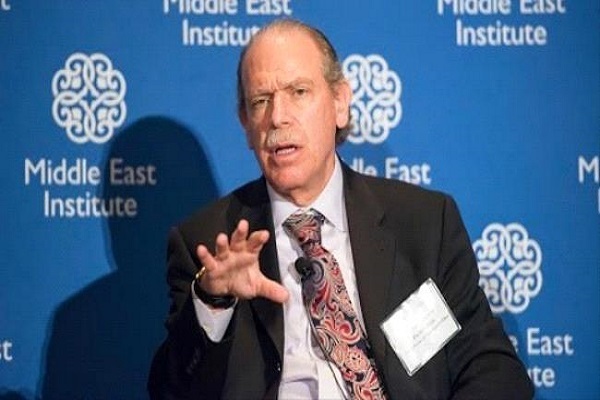Tehran-Riyadh Normalization Not Enough for Peace in Yemen: Former US Envoy

“To achieve peace, the Yemenis themselves must resolve outstanding issues of governance, as well as the economic and social challenges that have long divided the Yemenis,” Gerald Michael Feierstein, who was the US envoy to Yemen from September 2010 to October 2013, told IQNA.
“It’s necessary to understand that the conflict in Yemen is fundamentally a civil war,” he said, adding, “Outside parties, including the Saudis and Iranians cannot resolve these issues.”
Iran and Saudi Arabia reached an agreement on March 10 to resume diplomatic ties and reopen embassies after intensive talks hosted by China.
Many countries across the world have welcomed the agreement. There have been different opinions about its aspects and effects but most of them point to the potential of the rapprochement for increasing stability in the region and in particular, putting an end to the war in Yemen.
“In my view, it’s too early to judge the practical effects of the reopening of diplomatic relations between Iran and Saudi Arabia,” Feierstein said, adding, “Maintaining ambassadors in host government capitals is not, in itself, a solution unless the two governments agree to address substantive issues.”
“While the Saudis have been clear that they would only return their ambassador to Tehran if the Iranians committed to addressing Saudi concerns, the exact nature of any Iranian commitment is not clear. In particular, it’s not clear that it involves the conflict in Yemen. The Saudis have stated that the agreement in Beijing does not resolve outstanding differences with Iran. The Houthis have also stated that they will not be bound by Iranian advice,” added the former diplomat.
The remarks come as Saudi Arabia, in collaboration with its Arab allies and with arms and logistics support from the US and other Western states, launched the devastating war on Yemen in March 2015 with the objective of reinstalling the Riyadh-friendly regime of Abd Rabbuh Mansour Hadi.
While the Saudi-led coalition has failed to achieve any of its objectives, the war has killed hundreds of thousands of Yemenis and spawned the world’s worst humanitarian crisis.
Agreement reduced US leverage on Iran
Elsewhere in the interview, Feierstein noted that the Tehran-Riyadh détente will have a “complicated” effect on US influence in the region.
“By removing Saudi Arabia from a hardline, anti-Iran coalition, it does reduce leverage on the Iranians to reach an agreement on returning to the JCPOA,” he said, referring to the 2015 nuclear deal that was scrapped by former US president Donald Trump in May 2018 as talks to revive the agreement has been stalled for the past months.
The agreement also makes Israeli military threats against Iran’s nuclear program “less credible”, he said.
Asked about the possible effect of the rapprochement between Iran and Saudi Arabia on the normalization of ties between Riyadh and Tel Aviv, the ex-ambassador said: “I have always been skeptical that the Saudis and Israel were about to normalize their relations.”
“The Saudis have consistently stated that their position on normalization with Israel was the Arab Peace Initiative, which promises fully normalized relations with Israel following, not preceding, an Israel-Palestine agreement. There would be little benefit for the Saudis in altering that stance. The Saudi-Iranian agreement would not change that reality.”



